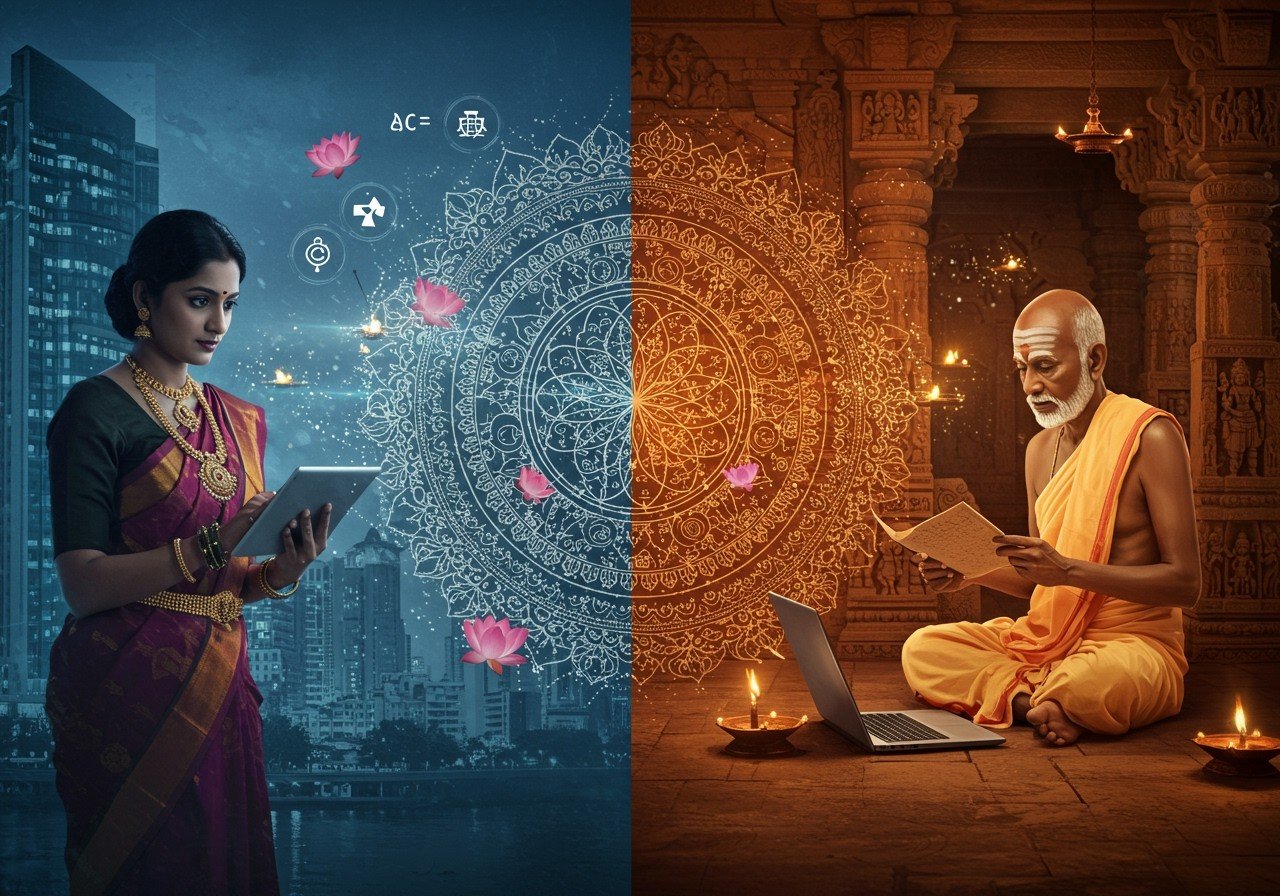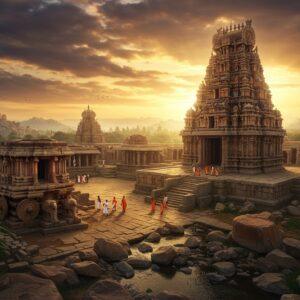
In India, two powerful cultural currents, Sanskritisation and Westernisation, continuously shape our society. Introduced by sociologist M.N. Srinivas, Sanskritisation describes the process by which communities adopt the customs and rituals of higher castes, traditionally for social mobility. Westernisation, on the other hand, is the adoption of Western ideas, culture, and lifestyles, accelerated by globalisation. As of 2025, these forces have significantly evolved, impacting our culture, society, and economy.
This exploration delves into their journey and continued influence on Indian life, balancing respect for our heritage with the convenience of modern living, much like how poojn.in offers traditional puja items with the ease of online shopping.
A Historical Look at Cultural Transformation
Sanskritisation, rooted in pre-independence India, provided a pathway for social advancement within the rigid caste system. Westernisation gained momentum during British rule and further accelerated after independence, propelled by economic liberalisation. The 21st century, with its rapid globalisation and technological advancements, has interwoven traditional and Western influences, creating a unique cultural blend. Understanding these origins illuminates the complexities of our cultural landscape today.
- Sanskritisation:
Originating within the Hindu caste hierarchy, this indigenous process focuses on religious and ritualistic practices, historically used as a tool for social mobility. For those seeking authentic puja items for these practices, poojn.in provides a wide selection. - Westernisation:
Driven by colonial influence and economic shifts, Westernisation involves adopting Western values and lifestyles. This process gained significant momentum through globalisation, impacting various aspects of Indian life.
Key Differences: Two Distinct Paths of Change
Recognising the differences between Sanskritisation and Westernisation provides valuable insights into their societal impact.
Sanskritisation:
- Origin: Rooted in India’s caste system, it’s an internal process of adopting upper-caste practices for upward mobility.
- Nature: A bottom-up approach focusing on religious and ritualistic practices within Hindu traditions. Traditional malas and other items for these rituals can be found on poojn.in.
- Scope: Aims to elevate social standing within the existing caste structure, often reinforcing traditional hierarchies.
- Values: Emphasises a sacred worldview, upholding traditions, and Brahmanical practices, sometimes including dietary restrictions like vegetarianism.
- Examples: Adopting vegetarianism, specific attire, or performing rituals similar to those of upper castes.
Westernisation:
- Origin: Driven by external forces like colonialism and globalisation, introducing new cultural elements.
- Nature: A top-down process influenced by Western thought and lifestyle choices.
- Scope: Impacts a wide range of areas, from technology and education to social norms, resulting in broad societal shifts.
- Values: Often promotes secular viewpoints, humanitarianism, and egalitarian principles.
- Examples: Embracing Western education systems, business practices, fashion, or entertainment forms.
Interestingly, Sanskritisation and Westernisation can, and often do, coexist. Sometimes, they even complement each other, creating new avenues for social change.
Shared Goals and Intersections
Despite their distinct origins, these processes share certain aspirations and characteristics.
- Social Mobility: Both aim for improved social standing. Sanskritisation seeks mobility within the caste system, while Westernisation focuses on development beyond it.
- Selective Adaptation: Individuals often choose which aspects to embrace, creating a unique balance between tradition and modernity. Just as one might choose a specific clay diya for Saraswati Puja from poojn.in , individuals selectively integrate practices into their lives.
- Education: A common thread, though with different focuses. Sanskritisation emphasises religious and traditional learning, while Westernisation prioritises formal education systems.
Hybrid cultural expressions, like Bollywood, beautifully exemplify this blend, showcasing the interplay of traditional and modern influences.
Shaping Modern India: A Cultural Balancing Act
In today’s India, Sanskritisation plays a crucial role in preserving traditional rituals, even as Westernisation gains prominence, particularly in urban areas, often encouraging individualism and consumerism. Family structures and gender roles are also influenced by this interplay, creating a delicate balance between our cultural heritage and modern lifestyles. We see this reflected in the coexistence of traditional rituals with Western-style weddings, for instance. Poojn.in understands this balance, offering traditional items alongside modern convenience.
Bridging Tradition and Modernity: The Role of poojn.in
Poojn.in acts as a bridge, connecting the reverence for tradition with the needs of our modern lives:
- Diverse Selection: Offers a range of traditional items, from sacred threads to deities, catering to diverse cultural needs.
- Authenticity and Quality: Prioritises genuine materials and quality-checked products, ensuring the sanctity of traditional practices. Much like choosing the right ingredients for a puja, poojn.in values authenticity.
- Modern Convenience: Provides a seamless online shopping experience with secure payments and doorstep delivery, merging tradition with contemporary convenience.
- Expert Guidance: Offers customer support via WhatsApp (9476142738) and phone (03369029784), providing guidance on product selection and traditional practices.
Conclusion: Embracing the Evolving Indian Identity
Sanskritisation and Westernisation are integral to India’s ever-evolving cultural narrative. While Sanskritisation safeguards our rich traditions and religious practices, Westernisation brings in global perspectives and modern ideas. Together, they create a vibrant tapestry reflecting the diverse and evolving identity of modern India. Embracing both these influences allows us to honour our heritage while adapting to the changing world. As we navigate the complexities of tradition and modernity, platforms like poojn.in play a crucial role in facilitating this delicate balance.


